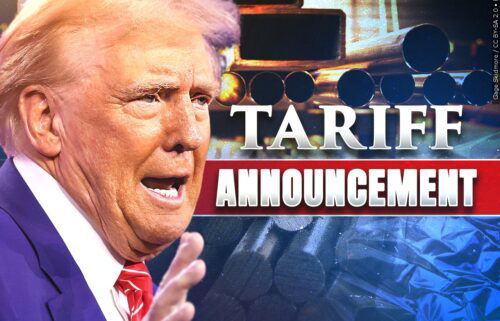Who owns the Colonial Pipeline? It’s complicated
About the only thing that hasn’t been hurt by the hacking attack that shut down the Colonial Pipeline? The company’s market value.
If it were publicly traded, the Colonial’s stock would undoubtedly have tumbled. But the 59-year-old firm is privately held, with its ownership split among five owners spread across five countries on four continents. Started as a joint venture between nine large oil companies, today it is worth about $8 billion, based upon the most recent sale of an 10.1% stake to a unit of Royal Dutch Shell in 2019.
Colonial Pipeline is generally a low-profile company, except when things go wrong, as they did spectacularly Saturday when the pipeline, a major source of gasoline and jet fuel used along the East Coast, was shut down by a ransomware attack. The company is expected to announce details of restart plans by the end of Wednesday, though any reboot likely will take days.
This isn’t Colonial’s first brush with shutdowns, although it is by far the worst. In September 2016 a major fuel spill closed the line for about two weeks and an explosion shut it down again later that year.
With the exception of Shell, Colonial’s owners today are privately held companies and pension funds. The 2019 Shell deal raised its stake in the pipeline from 6% to 16.1%, and today Shell is the only remaining integrated oil company to have a stake in the pipeline.
Over the years the rest of the major oil companies have sold their stakes in the venture, sometimes at the demand of regulators. ExxonMobil sold its stake following the 1999 merger of Exxon and Mobil, choosing instead to keep its shares in a Colonial competitor, Plantation Pipeline. ExxonMobil’s stake was repurchased by Colonial and distributed proportionately to its other owners.
Marathon and BP sold their separate stakes in Colonial in 2002 to a unit of Koch Industries, a privately held conglomerate with significant oil interests. Those sales gave Koch the largest stake in the pipeline, with 28.1% of the privately-held shares.
ConocoPhillips sold its 16.6% stake in Colonial to Caisse de dépôt et placement du Québec, a financial firm that manages funds primarily for public and private pension and insurance plans. And in 2010 Chevron sold its 23.4% stake to a joint venture between private equity firm Kohlberg, Kravis Roberts & Co. and South Korea’s state-run National Pension Service.
The other current owner of the pipeline is IFM Investors, an investment firm owned by a group of Australian pension funds, with a 15.8% stake in Colonial Pipeline.


